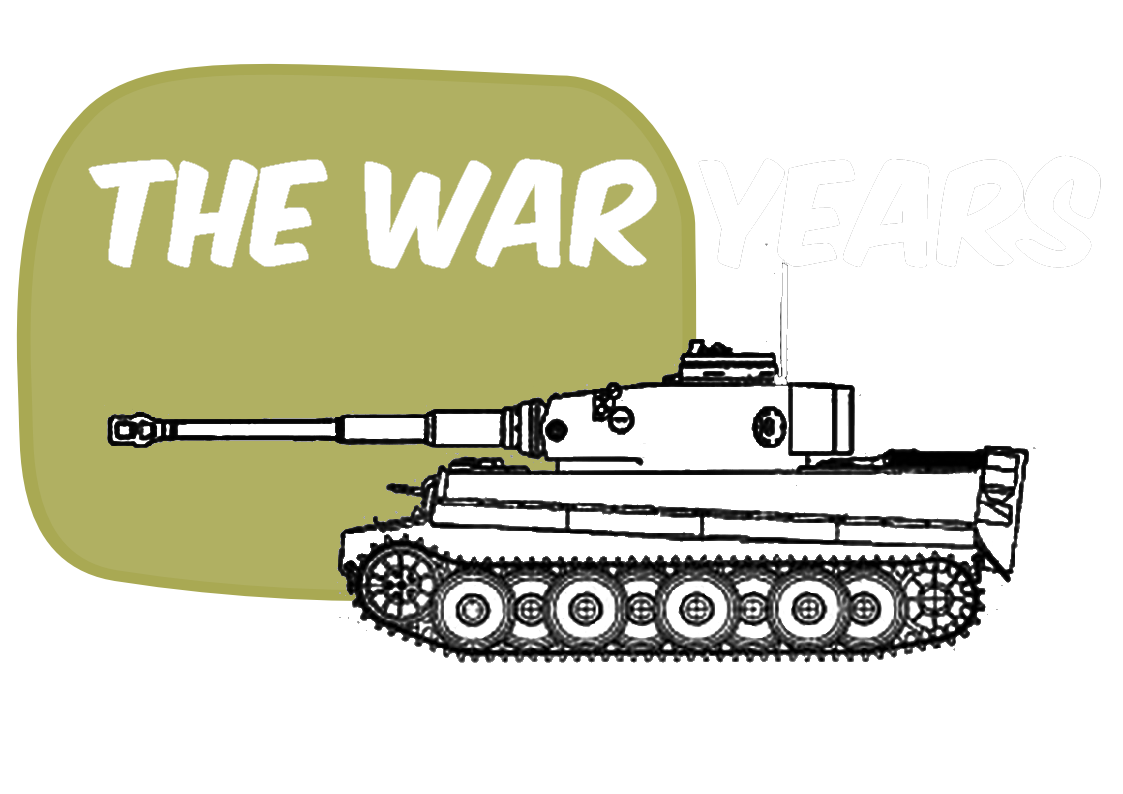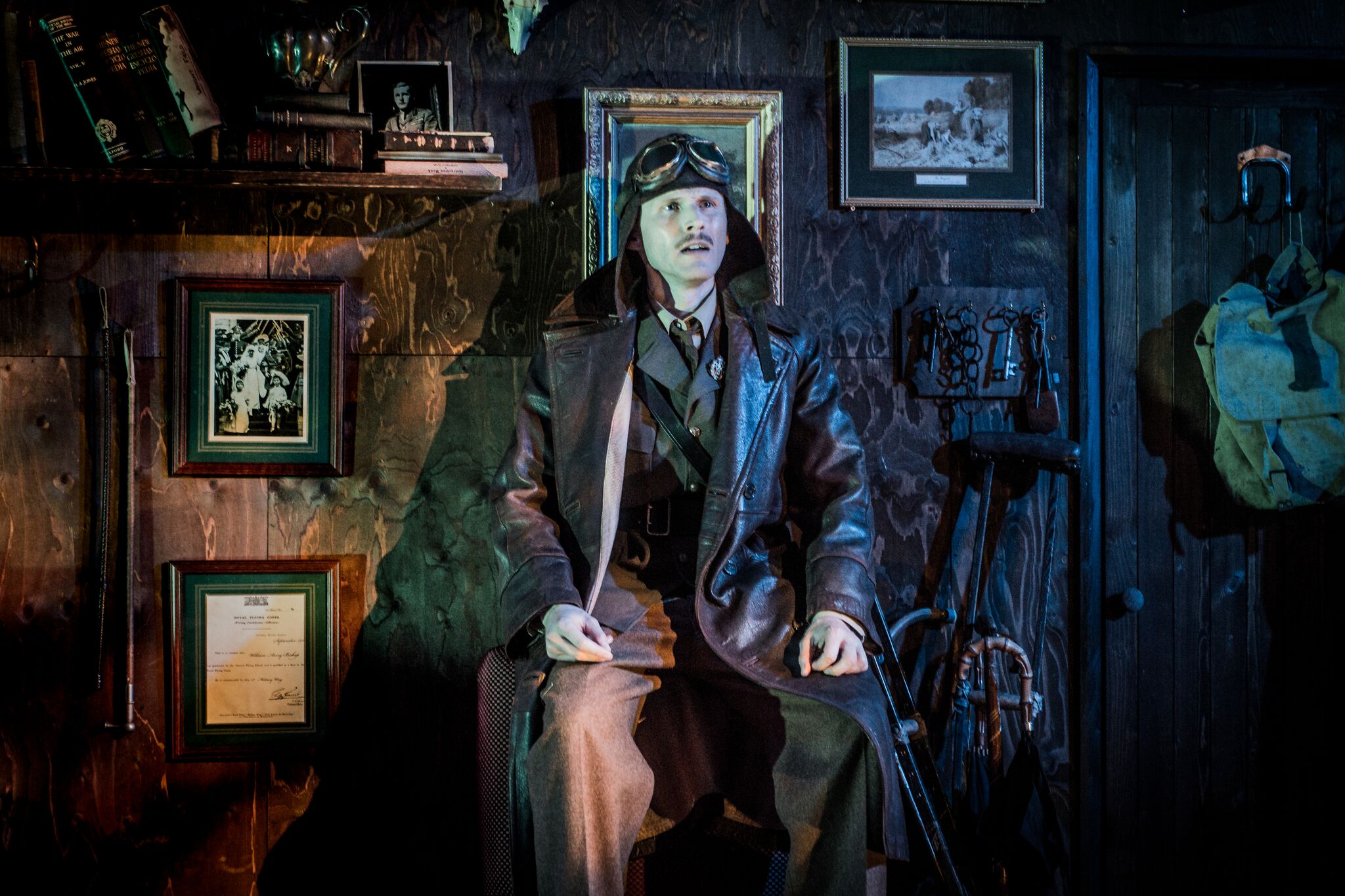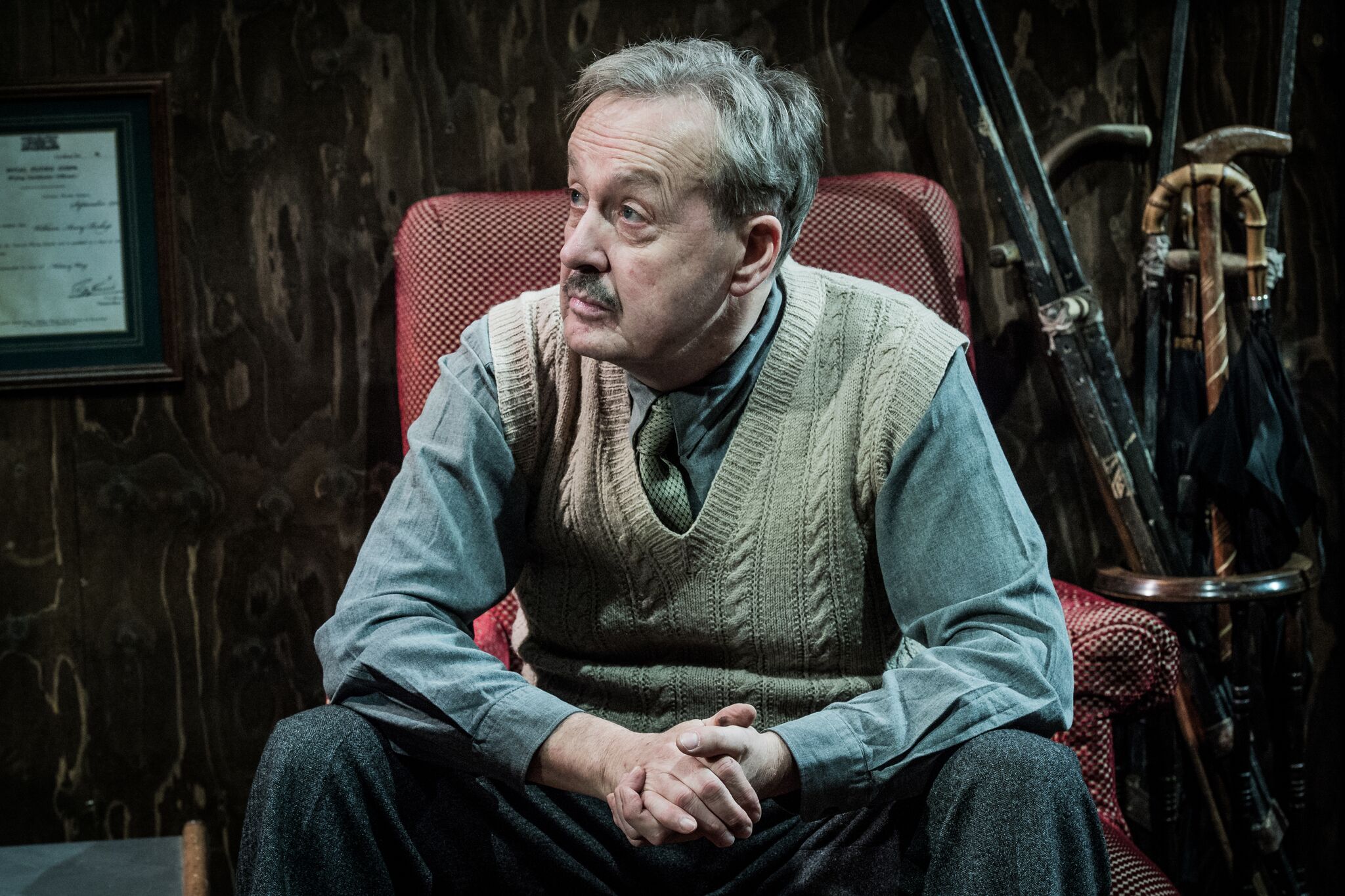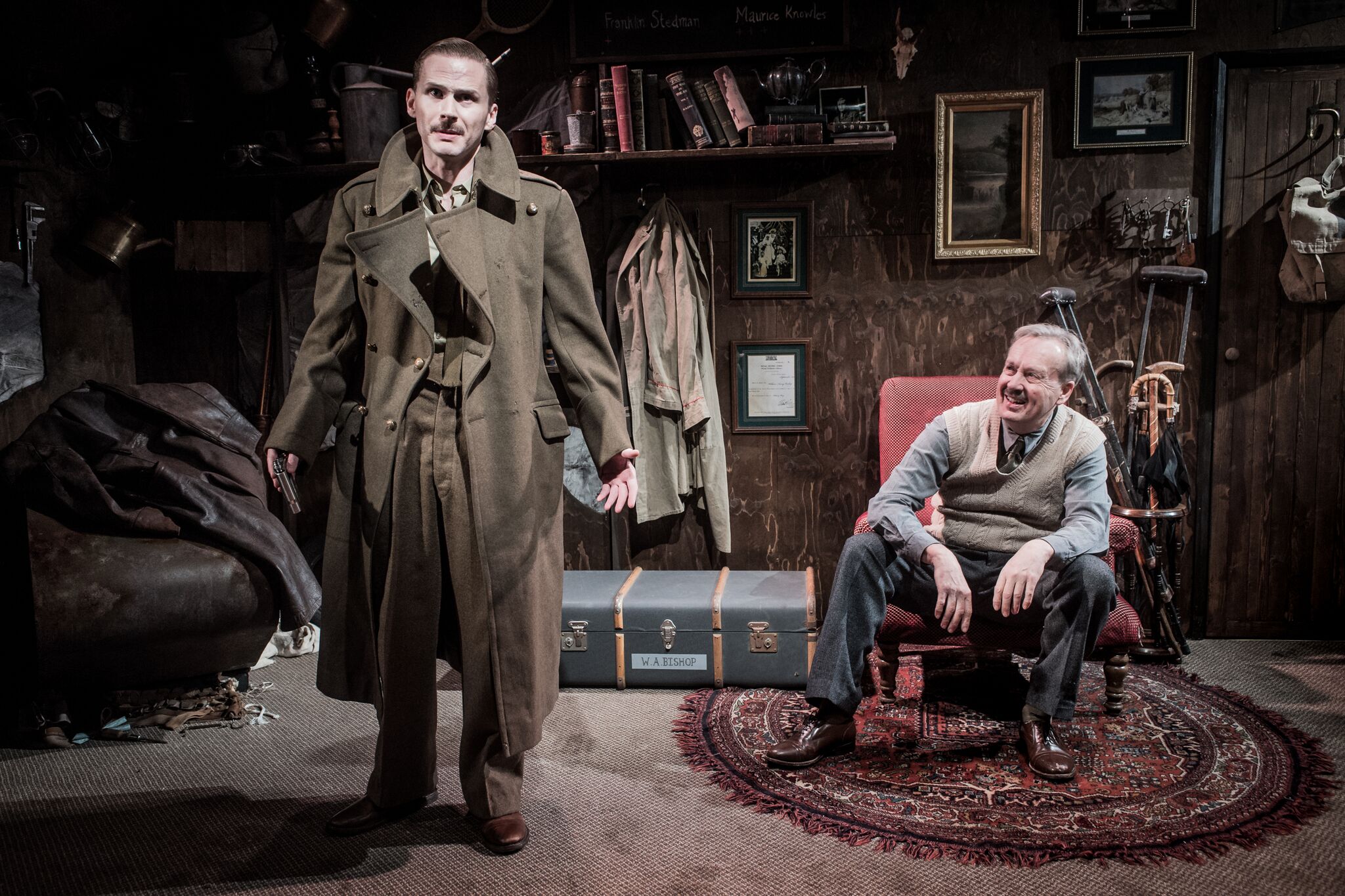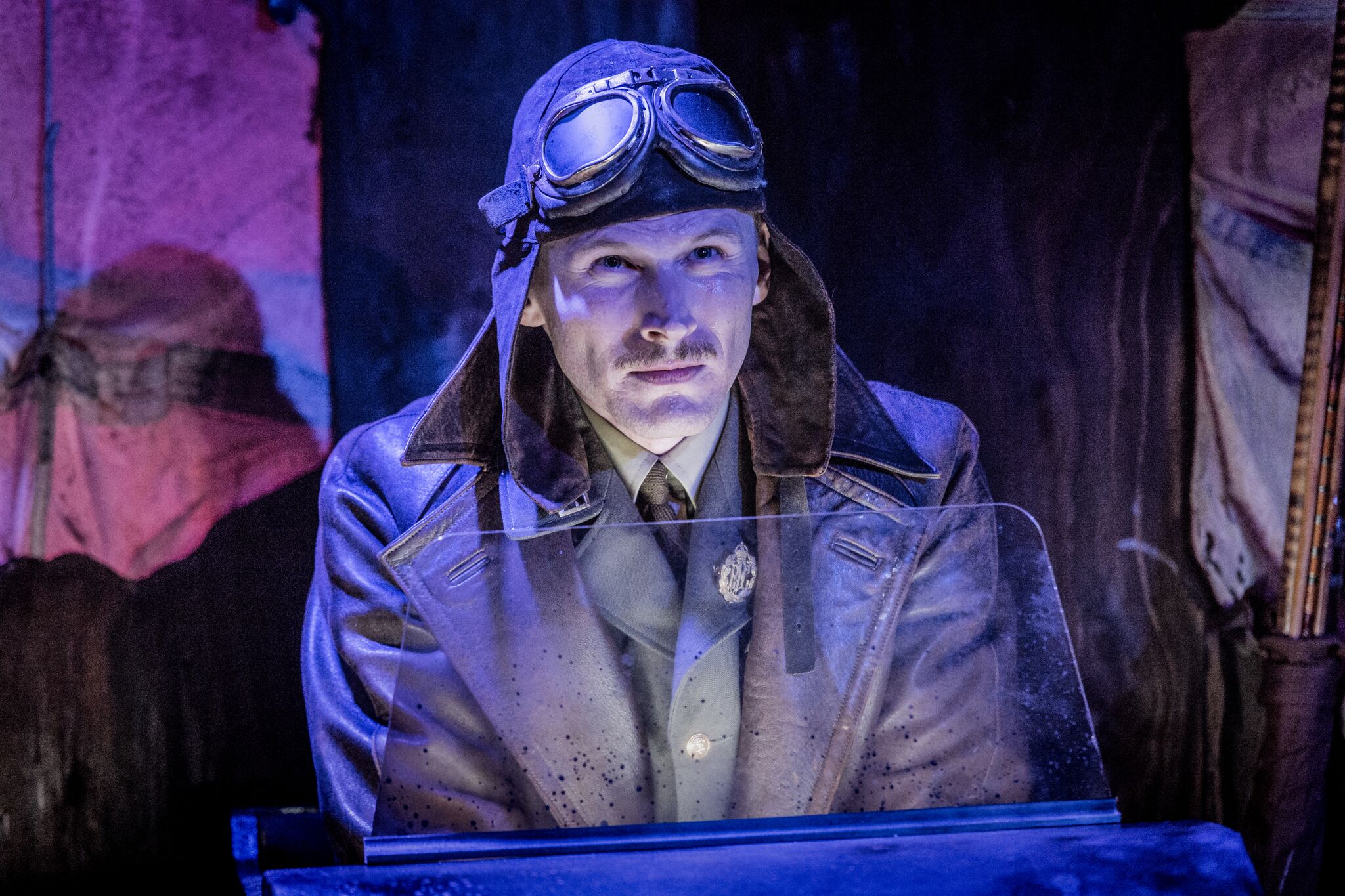Review: Billy Bishop Goes to War at the Jermyn Street Theatre
Usually, just two words would deter me from buying tickets to a show: musical theatre. So, it was with some trepidation that I accepted an invitation to watch the latest production of Billy Bishop Goes to War at the Jermyn Street Theatre, London. However, the moment actor Oliver Beamish began playing the piano and started to sing, I immediately knew I could strap myself in, sit back and enjoy the ride. In that tiny theatre, as intimate as any cockpit, with consummate professionals at the controls, we would navigate the career of WW1 Canadian flying ace Billy Bishop.
Written by John Gray with Eric Peterson, Bill Bishop Goes to War tells the wartime story of William (Billy) Avery Bishop during the period 1914 to 1917. The play also touches briefly on Billy’s military contribution during the Second World War. Billy made for an unlikely hero. He showed no promise as a young cadet at the Royal Military College of Canada (RMC), where he failed his first year and was caught cheating. He was somewhat accident-prone, and suffered bouts of stress-related illness. Nevertheless, he found himself commissioned as a cavalry officer and shipped across the North Atlantic to England in 1915. Two ships in his convoy were torpedoed by German U-boats with the loss of over 200 men.
While stationed in France during the summer of 1915, Billy transferred to the Royal Flying Corps (RFC) as an observer. In March 1917, he became a pilot joining the 60 Squadron at Filescamp Farm near Arras. At that time, the average life expectancy of a new pilot was just 11 days. Once again, Billy’s career as a pilot got off to a shaky start. He crash-landed his aircraft during a practice flight in front of General John Higgins. However, within a few short months, Billy was awarded the Victoria Cross for a solo attack against a German aerodrome. By August 1917, he had surpassed the late Albert Ball’s tally of “kills”. Billy was on his way to becoming one of the conflict’s greatest fighter aces. After a brief period of leave in Canada, where he got married, Billy returned to the fray. Eventually, he was promoted out of harm’s way as Officer Commanding-designate of the Canadian Air Force Section of the General Staff, Headquarters Overseas Military Forces of Canada. By the war’s end, he had claimed 72 aerial victories, including two balloons.
During World War Two, Billy Bishop was appointed Director of the Royal Canadian Air Force and placed in charge of recruitment. In 1942, he appeared as himself in the Hollywood movie Captains of the Clouds. In 1944, Billy’s old foe stress-related illness forced him to resign. He died in his sleep on 11 September 1956, aged 62.
The Jermyn Street Theatre is a small, subterranean gem. The intimacy of the space and excellent set design by Daisy Blower created the feeling of being in a First World War dugout. Packed with the memorabilia of the older Billy’s extraordinary life, even the most mundane items such as a suitcase and an old red armchair were transformed into meaningful props. In a time when audiences can be blasé about multi-million dollar movie special effects, it was wonderful to see a swinging lamplight create the illusion of movement as Billy crossed the ocean aboard the ship Caledonia. A vessel designed to ship cattle, not men.
First staged in 1978, this revival of Billy Bishop Goes to War has more than a touch of the BBC sitcom Blackadder Goes Forth. Directed by Jimmy Walters, this musical drama moved seamlessly between comedy and tragedy. Actors Charles Aitken and Oliver Beamish did a brilliant job of portraying Billy in his youth and later life. They immediately established a wonderful rapport with the audience. Oliver Beamish provided the piano and musical accompaniment while Charles Aitken brought amazing physical energy to the performance. The two actors played an additional 17 characters. I particularly liked Charles Aitken’s Lady St. Helier, Billy’s patron in London society. He seemed to be channelling actress Frances de la Tour.
As the Jermyn Street Theatre is a registered charity, I was a little disappointed that the small auditorium was not sold out, and about a third of the seats were empty. I was also surprised the production is only running until 24 November 2018. Just days before the centenary of the end of the First World War, Billy Bishop Goes to War reminds us of the immense courage, perseverance and sacrifice of ordinary men who served in the “Great War”. The drama also examines the tensions between the British establishment and its “colonial” cousins, who were good enough to fight and die for the empire while being widely regarded as second-class citizens. Overall, the show is a wonderful, poignant piece of musical theatre that teaches us ordinary people can do the most extraordinary things.
Production photography courtesy of Robert Workman
